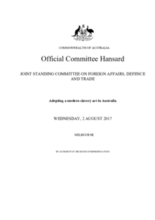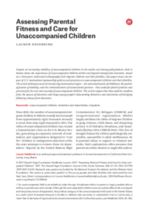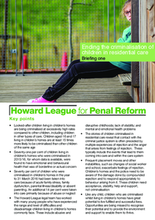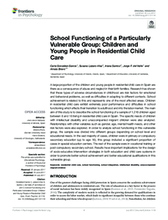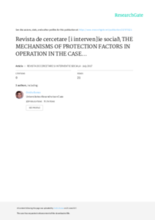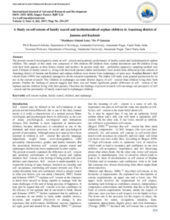Displaying 351 - 360 of 771
This paper is the final chapter of Child Maltreatment in Residential Care, summarizing and analyzing the research presented on child maltreatment in institutions, its impact on children, and prevention and intervention strategies.
This chapter of Child Maltreatment in Residential Care describes the history of child care institutions in the Russian Federation and the legislative changes implemented to improve the situation of children living in residential care settings.
This document includes the full transcript of the public hearings of the Australian Parliamentary Inquiry in preparation for a Modern Slavery Act.
Based on a three-year, multi-sited ethnography with unaccompanied migrant children and their families, this paper investigates how U.S. institutional policies of immigration detention and family reunification impact migrant children and their families.
This briefing the first in a series describing a programme of the Howard League for Penal Reform, which is intended to clarify why so many children in residential care in England and Wales are being criminalised at higher rates than their peers and identify examples of best practice to prevent their unnecessary criminalisation.
This study examined language and psychosocial skills of Greek institutionalized children in comparison to children of the same age brought up in family-based care.
language and psychosocial skills of Greek institutionalized children in comparis
In this video, Kate van Doore describes the process of 'paper orphaning,' a term coined to characterize how children are recruited and trafficked into orphanages to gain profits through international funding and orphanage tourism.
This study describes the school functioning of a sample of 1,216 children aged between 8 and 18 living in residential child care in Spain. Results have important implications for the design of socio-educative intervention strategies in both education and child care systems in order to promote better school achievement and better educational qualifications in this vulnerable group.
The aim of this study was to identify the processes that support the good results obtained by the teenagers and young persons who reside in the largest residential centre in the county of Iași, Romania and their concerns regarding the future.
The present research investigated a study on self - esteem and academic performance of family reared and institutionalized orphan children.

